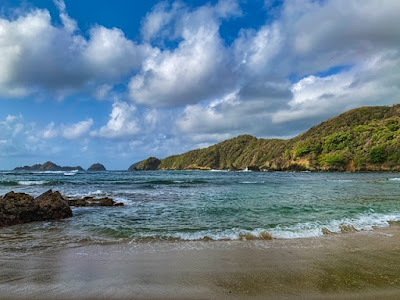Environmental Discoveries

From burping lakes to sequestering whales, Anjani Ganase highlights some of the year’s recent environmental discoveries. Humpback whale tail, Reunion Island. Credit: François Baelen / Ocean Image Bank Bad breath from lakes Around the world, there has been an increase in the number of small lakes, observed between the 1980s and 2019. The total area of lakes around the world has increased by about 46,000 km 2 (roughly the area of Denmark). This increase in lakes around the world, especially in the higher latitudes, is due to the melting permafrost and glaciers resulting in the formation of glacial lakes because of global warming, as well as the development of artificial reservoirs inland. Scientists were able to use remote sensing to map 3.4 million lakes and reservoirs around the world to determine their surface area and determine the changes over the last four decades. But why is this increase in lakes a concern for scientists? Lakes are known to emit gree...



